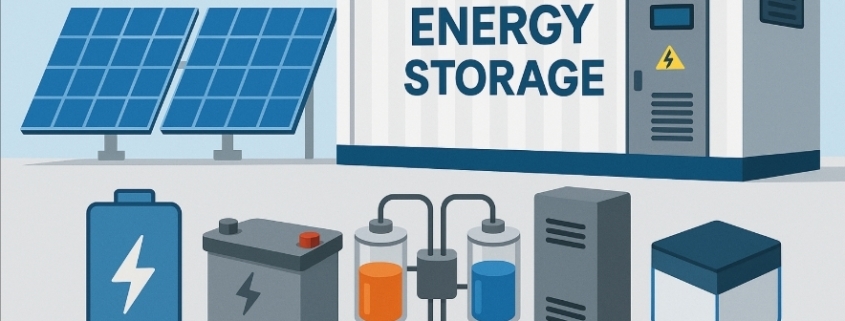Top 5 Battery Technologies Used in BESS: Choosing the Right Storage Solution
As the demand for reliable renewable energy grows, Battery Energy Storage Systems (BESS) have become an essential part of modern power infrastructure. But did you know that not all batteries are the same? In this post, we’ll break down the top 5 battery technologies used in BESS and help you understand their advantages, limitations, and typical applications.
1. Lithium-Ion Batteries: The Most Popular Choice
Lithium-ion batteries are by far the most common battery technology used in BESS today. Their high energy density, long cycle life, and declining costs make them ideal for everything from residential storage to utility-scale projects.
Pros:
- High energy density
- Long lifespan (up to 15 years or more)
- Good round-trip efficiency (90%+)
Cons:
- Sensitive to temperature
- Fire risk if not properly managed
Where they fit:
Perfect for grid balancing, renewable integration, and behind-the-meter storage.
2. Lead-Acid Batteries: Reliable and Cost-Effective
Although older than other battery technologies, lead-acid batteries are still widely used in BESS for their low upfront cost and proven track record.
Pros:
- Low capital cost
- Mature and well-understood technology
- Easy to recycle
Cons:
- Lower energy density
- Shorter cycle life (typically 3–5 years)
- Heavier and larger footprint
Where they fit:
Best for backup power and applications where budget constraints are tight and space is not an issue.
3. Flow Batteries: Flexibility for Long-Duration Storage
Flow batteries (like vanadium redox) store energy in liquid electrolytes that flow through a cell stack. They’re gaining attention for large-scale, long-duration storage projects.
Pros:
- Long cycle life (can reach 20 years)
- Easily scalable capacity and power
- Minimal degradation over time
Cons:
- Higher upfront cost
- More complex system design
Where they fit:
Great for grid-scale renewable energy projects where storage of 4+ hours is needed.
4. Sodium-Sulfur (NaS) Batteries: High-Temperature Contenders
Sodium-sulfur batteries are high-temperature batteries that deliver large amounts of energy for longer durations. Utilities have used them for grid support and load leveling.
Pros:
- High energy density
- Suitable for large-scale, long-duration storage
- Long cycle life
Cons:
- Operate at high temperatures (300°C+)
- Safety and material challenges
Where they fit:
Best for utility-scale BESS applications where space and temperature control are manageable.
5. Solid-State Batteries: The Future of BESS?
Pros:
- Higher energy density potential
- Improved safety (no flammable liquid)
- Longer lifespan
Cons:
- Still in development phase for large-scale use
- High cost
Where they fit:
Promising for future BESS projects once commercialization and scalability improve.
How to Choose the Right Battery Technology for Your BESS
Choosing the best battery for your energy storage project depends on your goals:
✅ Do you need high energy density? → Lithium-ion or solid-state.
✅ Is low upfront cost key? → Lead-acid might work.
✅ Do you want long-duration storage? → Consider flow or sodium-sulfur batteries.
✅ Looking to future-proof? → Keep an eye on solid-state technology.
Always balance cost, safety, lifespan, efficiency, and your specific use case when selecting battery technologies for BESS.
Final Thoughts
The top 5 battery technologies used in BESS each offer unique benefits for different applications. By understanding these options, you can make smarter choices that support grid resilience, renewable energy adoption, and a sustainable future.
FAQ: Top 5 Battery Technologies Used in BESS
Q1: Which battery is best for home energy storage?
Lithium-ion batteries are the most common for residential BESS because they are compact, efficient, and reliable.
Q2: Are flow batteries good for solar farms?
Yes, flow batteries are excellent for large-scale solar or wind farms needing long-duration energy storage.
Q3: How long do BESS batteries last?
It depends on the technology: lithium-ion can last 10–15 years, flow batteries up to 20 years, and lead-acid about 3–5 years.
Q4: What’s the safest battery for BESS?
Solid-state batteries promise enhanced safety because they have no flammable liquid, but they’re not yet widely available. Proper BMS (battery management systems) also play a big role in safety.
Q5: Can I mix different battery technologies in one BESS?
Technically, it’s possible but complex. Most projects stick with one type to simplify design, maintenance, and management.


